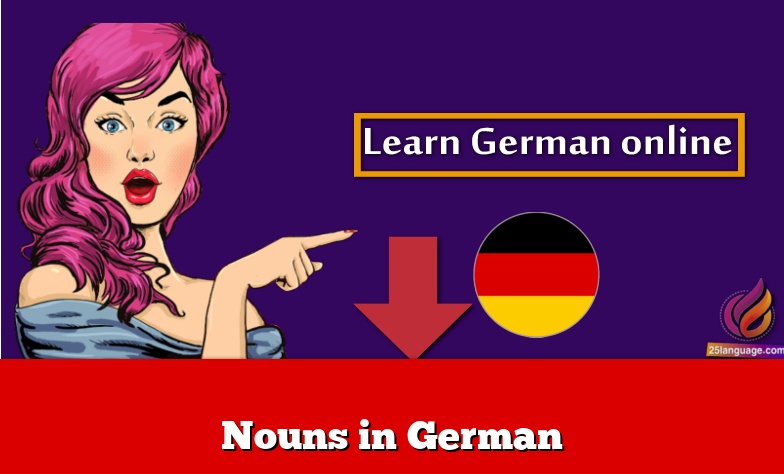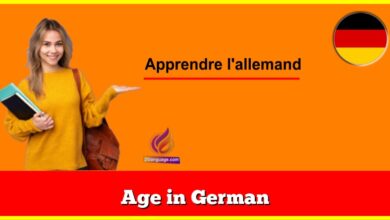Nouns in German

Nouns in German is a fundamental part of speech, occurring in sentences in two different ways: as subjects (performers of action), or objects (recipients of action).
As a generality, a noun is the name of a “person, place, or thing”. Nouns are classified into proper nouns (e.g. “Janet”), common nouns (e.g. “girl”), and pronouns (e.g. “she” and “which”).
A proper noun (also called proper name) is a noun which denotes a unique entity. The meaning of a proper noun,
outside of what it references, is frequently arbitrary or irrelevant (for example, someone might be named Tiger Smith despite being neither a tiger nor a smith).
Because of this, they are often not translated between languages, although they may be transliterated — for example, the German surname “Knödel” becomes “Knoedel” in English, as opposed to “Dumpling”.
Proper nouns are capitalized in English and all other languages that use the Latin alphabet; this is one way to recognize them.
Definite Articles
The definite article (bestimmter Artikel) is equivalent to an English ‘the’, and the three basic gender forms of definite articles in German are as follows:
| der | masculine |
| die | feminine |
| das | neuter |
To say ‘the book’ in German, you would say das Buch, because Buch is a neuter noun. To say ‘the man’ in German, you would say der Mann, because Mann is a masculine noun. To say ‘the woman’ in German, you would say die Frau, because Frau is a feminine noun.
Noun gender does not always derive from actual gender where gender might be applicable. For example, ‘the boy’ is der Junge (masculine); but ‘the girl’ is das Mädchen (neuter). Also, nouns that have no inherent gender are not necessarily neuter.
Indefinite Articles
In addition to the definite articles—”the” in English and der-words in German—discussed above, both languages have indefinite articles (unbestimmter Artikel). Indefinite articles precede nouns in the same way that definite articles do,
but convey a general or indefinite sense. These are “a” or “an” in English.
Thus, ‘the book’ or das Buch refers to a definite or specific book, whereas ‘a book’ or ein Buch is indefinite about which book is referred to.
Indefinite articles also have gender as shown here:
| ein | der | masculine |
| eine | die | feminine |
| ein | das | neuter |
Here are some examples of indefinite articles used in German sentences:
Ich habe einen Ball. I have a ball.
Heute lesen wir ein Buch. Today we read a book.
Markus trifft einen Studenten auf der Straße. Mark meets a student on the street.
Die Geschäftsleute haben eine Antwort. The business people have an answer.
Ein Freund spielt Ball mit ihm. A friend plays ball with him.
Why, you ask, are there words like einen in some sentences above—a spelling that does not appear in the gender table?
The tables for both the definite and indefinite articles above are simplified at this stage, giving only articles in the nominative case (applied to words that are subjects of verbs).
In the very next lesson you will start to address all the other cases in German.





























